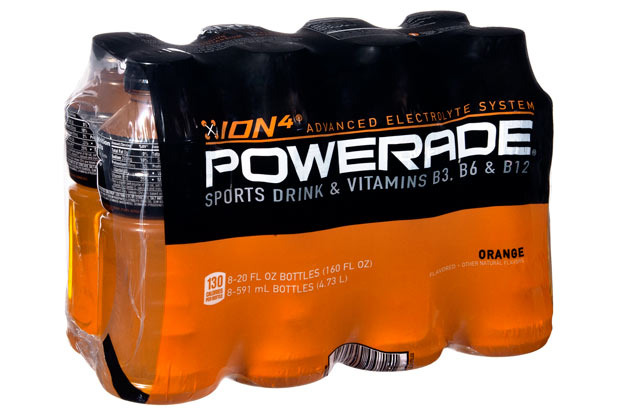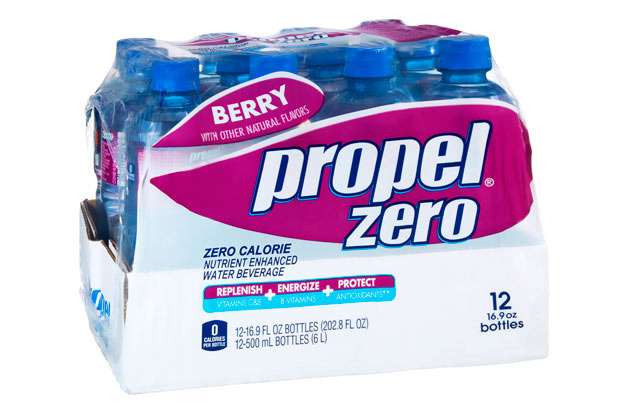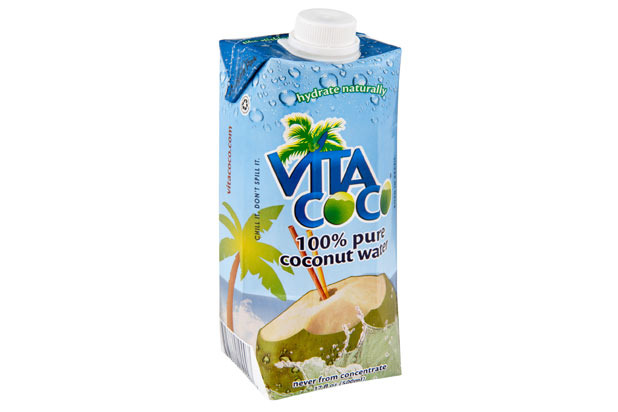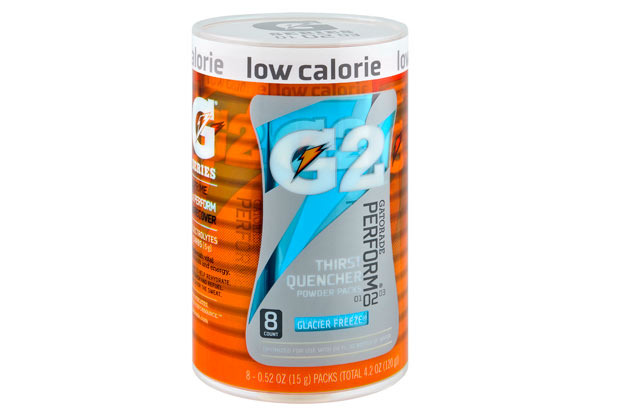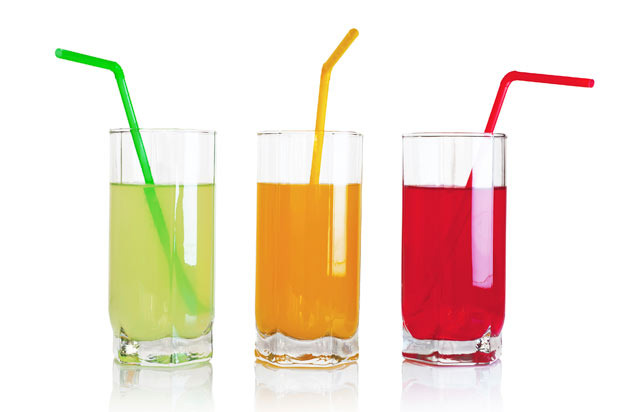Sports Drinks: The Myths Busted Slideshow
GSeries 02 Perform Original G: 50 calories, 14 grams of sugar, 110 milligrams sodium, 30 milligrams potassium
GSeries Fit 02 Perform: 10 calories, 2 grams of sugar, 110 milligrams sodium, 30 milligrams potassium
Gatorade's newly extended product line may seem overwhelming, but there are only two drinks in the line that the regular exerciser might want to pick up: the original, GSeries 02 Perform, and the light version, GSeries Fit. The GSeries 02 Perform has a good balance of carbohydrates, sugars, and electrolytes to keep you going when your workout extends past the 60-minute activity threshold. Going on an all-day bike riding trip with friends? Start drinking. The GSeries Fit, on the other hand, is great for the casual exerciser who wants the rehydrating effects of a sports drink with fewer calories.
Powerade
Powerade Energy: 45 calories, 10.5 grams of sugar, 50 milligrams sodium, 0 milligrams potassium
Powerade ION4: 17 calories, 3.9 grams of sugar, 50 milligrams sodium, 12.5 milligrams potassium
Powerade may be the drink of Olympians — they're the official sponsor of the games but is it the right choice for you? It depends on which drink you choose. While the Powerade energy drink might be tempting for the sleepy athlete, the added caffeine is actually dehydrating the opposite effect you want during a workout. This is certainly a sports drink to skip. Instead, choose Powerade ION4. Suggested for athletes engaging in activity for more than 30 minutes at a high intensity, this drink will help keep you hydrated and balanced.
Propel Zero
0 calories, 0 grams of sugar, 80 milligrams sodium, 0 milligrams potassium
Despite being a zero-calorie sports drink, the Propel Zero water has little to offer in the way of sports nutrition. It's not ideal for athletes undergoing strenuous physical activity; there aren't not enough calories or electrolytes to replenish you after a strenuous workout. In reality, the only thing this drink offers is a laundry list of artificial ingredients. Reach for this drink if you're exercising for less than 60 minutes, but sweating more than usual. You'll be able to rehydrate quicker, but won't take in any unneeded calories.
Coconut Water
Vita Coco 100% Pure: 45 calories, 0 grams of sugar, 30 milligrams sodium, 515 milligrams potassium
The coconut water craze may have taken health-conscious exercisers by storm, but are there any health benefits to gain from sipping from those little cardboard cartons? Boasting five electrolytes and more potassium than a banana, coconut water seems like an all-natural miracle fluid to replenish your body after a gruelling workout. Research, however, reveals that coconut water may not live up to the hype. Coconut water's overload of potassium doesn't necessarily make it a better sports drink. As Liz Applegate, sport-nutrition director at UC Davis, told Mother Jones, "Even though the belief is that when you exercise you need a lot of potassium, sodium is more important. When you sweat, you lose a lot more sodium than potassium."
Powders
Not impressed by the bottled options? A powder may be the perfect option for you, suggests Stella Mostovas nutritionist and former USA swimmer. Powders generally come with fewer added sweeteners while offering the same balance of electrolytes. With the powdered drinks, you get the nutritional benefits of a sports drink without the extra sugar, flavors, and colors. Most major companies, such as Gatorade and Powerade, sell these mixes.
Homemade
Though a homemade sports drink might not be the typical remedy, it's the perfect solution for anyone who is concerned about what they are putting in their body. The main goal is to try to keep the ingredients in the proper balance. Registered dietitian Dawn Jackson Blatner shared with the Chicago Tribune her own recipe for "homemade Gatorade," a mixture of honey, water, orange juice, and salt. Another recipe from Nancy Clark's Sports Nutrition Guidebook uses salt, sugar, orange juice, lemon juice, plus hot and cold water.

